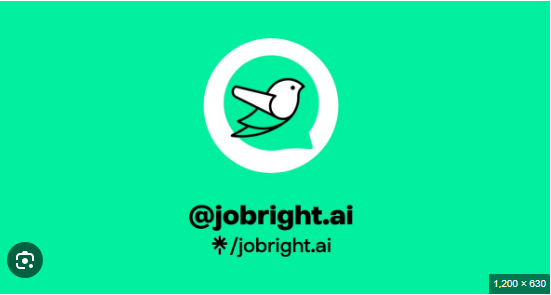Artificial Intelligence (AI) has transformed how we live, work, and communicate—and now it’s changing the way we prepare for and perform in job interviews. Whether you’re a job seeker aiming to land your dream job or an employer striving to hire the best talent, AI offers tools and techniques that make interviews more effective, data-driven, and confidence-boosting.
In this article, we’ll explore how to use AI before, during, and after an interview to gain a competitive edge, improve performance, and streamline the hiring process.
1. AI in Interview Preparation
A. Resume Optimization with AI
Before the interview even begins, your resume is the first impression you make AI-powered tools like Jobscan, Rezi, and Resumatch how to use ai for an interview can analyze your resume against job descriptions and suggest improvements to enhance keyword alignment and formatting.
These tools use natural language processing (NLP) to:
- Identify skills and experiences missing from your resume.
- Suggest keyword optimization based on Applicant Tracking Systems (ATS).
- Provide real-time feedback on readability, layout, and content quality.
B. Practice Interviews with AI Chatbots
One of the most practical uses of AI is for mock interviews. Platforms like Interview Warmup by Google, Prepper, and Yoodli simulate real interview scenarios, using AI to assess your responses and provide constructive feedback.
Benefits include:
- Practicing common and technical interview questions.
- Improving body language and eye contact (in video interviews).
- Receiving instant feedback on filler words, tone, pace, and clarity.
These platforms help users overcome nervousness by providing a risk-free environment to practice repeatedly.
C. Personalized Question Prediction
Advanced tools use machine learning to predict the most likely questions based on a specific job description. AI can analyze a job ad, scrape relevant data from LinkedIn or Glassdoor, and generate a set of questions likely to be asked during your interview.
Some platforms even provide:
2. Using AI During the Interview
While using AI during a live interview must be done carefully and ethically, there are ways it can assist both candidates and employers without violating privacy or professionalism.
A. Real-Time Feedback for Candidates
With the rise of remote interviews via Zoom, Google Meet, and Microsoft Teams, AI-integrated browser tools like Grammarly, Yoodli, and Otter.ai can silently assist you during the conversation.
Features include:
- Live speech transcription.
- Subtle tone analysis and delivery feedback.
- Suggestions to slow down or rephrase.
Note: It’s crucial to use these tools discreetly and ensure they don’t interfere with the natural flow of conversation or compromise your authenticity.
B. AI for Recruiters: Candidate Analysis
Recruiters also use AI during interviews. Tools like HireVue, Pymetrics, and myInterview leverage AI to assess candidates on various parameters, including:
- Facial expressions and micro-emotions.
- Voice modulation and confidence.
- Word choice and logical thinking.
These systems generate personality profiles and fit scores, helping employers make more objective decisions. For candidates, being aware of such tools helps you present yourself more effectively—staying calm, articulate, and expressive.
3. After the Interview: Leveraging AI for Follow-Up and Feedback
A. Interview Review and Improvement
After an interview, reviewing your performance is key to continuous improvement. AI platforms can help you analyze your:
- Recorded answers (if practicing).
- Interview notes (via voice-to-text).
- Body language in video interviews.
Tools like Yoodli and VMock can generate reports highlighting:
- Areas for improvement.
- Use of passive language or weak phrasing.
- Missed opportunities to showcase achievements.
B. AI-Generated Thank-You Notes
Sending a thoughtful thank-you note after your interview can leave a lasting impression. AI writing assistants like ChatGPT, Copy.ai, or Jasper can help craft professional and personalized follow-up messages that:
- Reinforce your enthusiasm.
- Summarize key strengths you discussed.
- Address any areas of concern raised during the interview.
Simply feed in the interviewer’s name, job title, and what you talked about, and these tools will create a thank-you note tailored to your tone and style.
4. Ethical Considerations and Limitations of AI in Interviews
While AI is a powerful assistant, it should not replace human intuition and ethics. Here are some important points to remember:
A. Avoid Over-Automation
Relying too heavily on AI-generated responses or prompts during an interview may come across as robotic. Employers are looking for authenticity, emotional intelligence, and human connection—things AI cannot fake convincingly.
B. Privacy and Transparency
If you use AI tools that record or transcribe interviews, make sure it’s legal in your jurisdiction and transparent to the other party. Recording conversations without consent can violate laws and damage trust.
C. Bias in AI Tools
Just like humans, AI systems can be biased. If you’re being evaluated by an AI-powered hiring system, understand that:
- AI is only as objective as the data it was trained on.
- Different demographics may be unfairly scored due to historical biases.
- Transparency in the scoring methodology is crucial.
Candidates and companies should advocate for explainable AI and ensure systems are tested for fairness and inclusivity.
5. Future Trends: What’s Next for AI and Interviews?
The intersection of AI and interviews is still evolving. Here are a few trends shaping the future:
A. Emotionally Intelligent AI
Emerging models are being trained to detect not only facial expressions but also emotional cues, cognitive stress, and trustworthiness—aiming to create a more holistic view of candidate potential.
B. Virtual Reality (VR) and AI Integration
Imagine practicing interviews in a virtual environment with AI avatars playing the role of an interviewer. Companies like Mursion are already offering VR simulations for soft skills training and leadership development.
C. AI Coaching Before and After Interviews
AI will increasingly act as a career coach, offering personalized interview tips, industry trends, and even negotiation strategies based on market data and your career goals
Conclusion
AI has become an indispensable tool in the modern job interview process How to use ai for an interview From polishing your resume and practicing responses to evaluating performance and crafting thank-you notes, AI can give job seekers and hiring managers alike a strategic advantage.
However, it’s essential to balance technology with the human elements that interviews require—authenticity, empathy, and adaptability. By using AI ethically and thoughtfully, candidates can prepare smarter, present better, and learn fa








Leave feedback about this